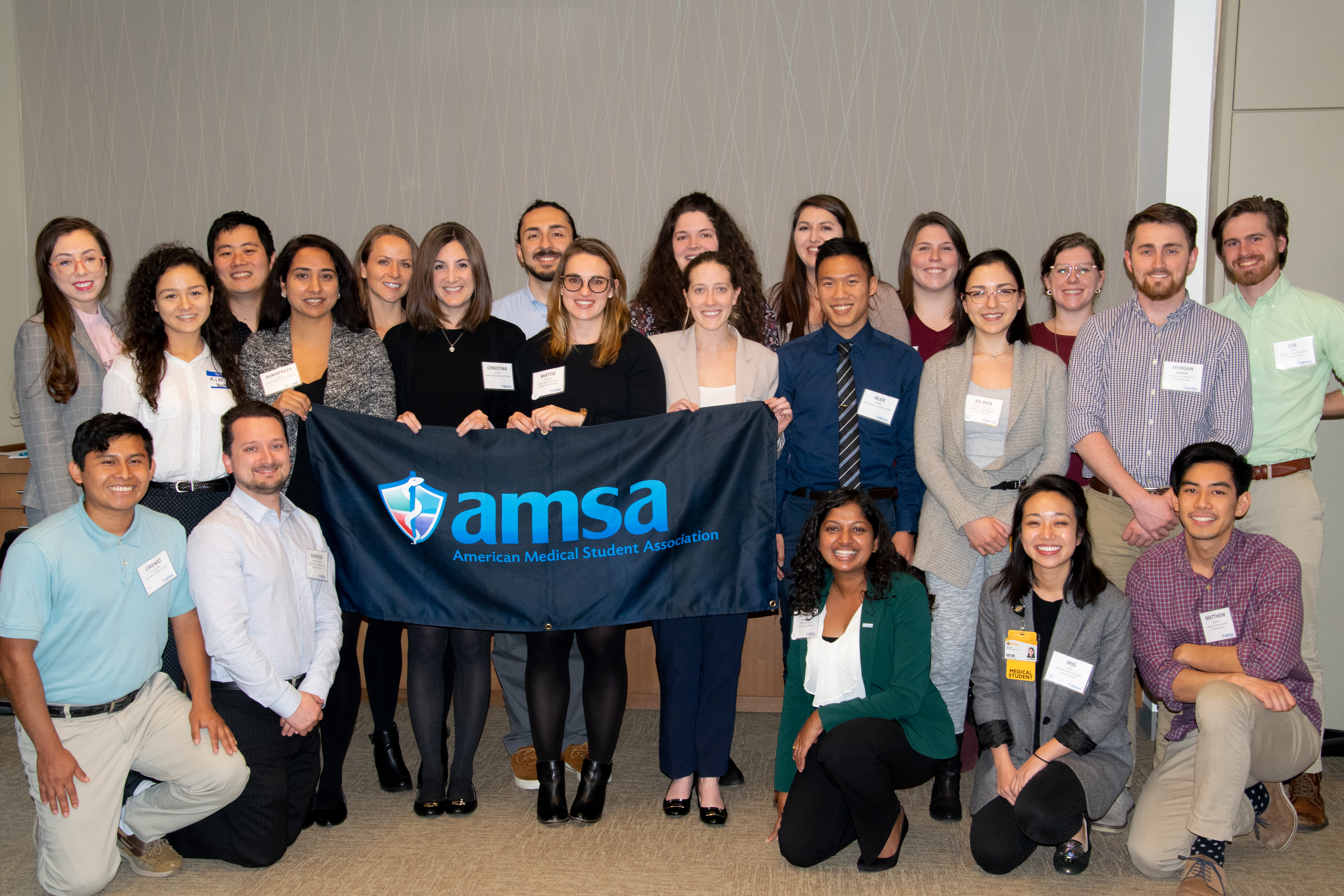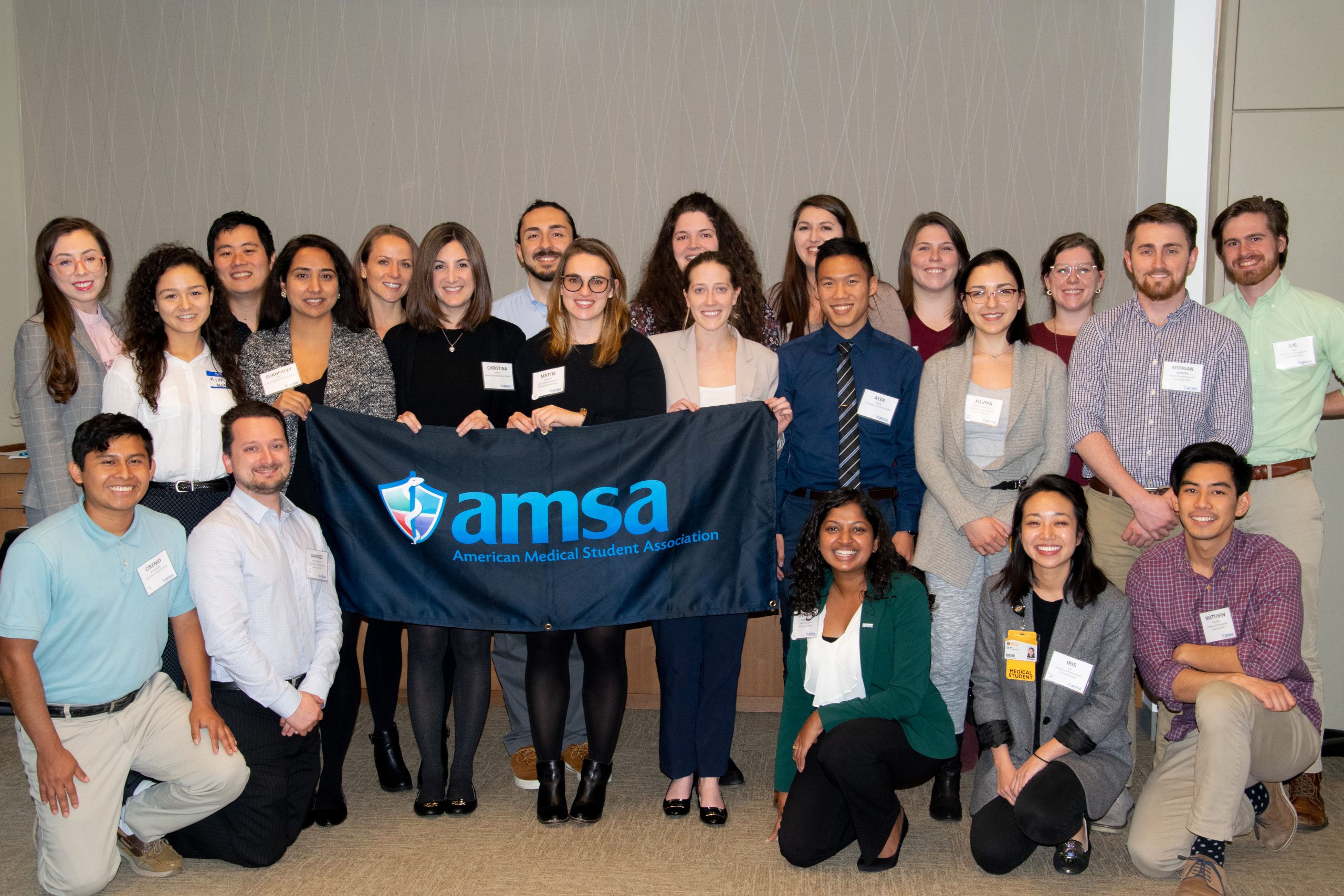By: Maria Filippa Trikantzopoulou
Politics has never been on my radar. After all, I have a degree in engineering and just began a career in medicine; it never occurred to me that I could be involved in policy-making and grassroots organizing.
Well, at least that is what I thought—until I came to realize how interconnected policy is with medicine. Even in my brief exposure to the health care system in my premed career, I witnessed multiple injustices. It ranged from patients not being able to afford their prescriptions or hospital bills to patients waiting for hours to be seen in the emergency room, only to be handed a treatment plan they didn’t quite understand. I met many people who, for valid reasons, did not trust the health care system.
As a future physician, I came to realize that in order to take care of my patients, I could not be silent in the face of these important public health issues. Instead, I must actively partake in the change that will rebuild trust within the patient community. Even so, I still had this fear: Where do I begin?
It seems that in school, we are taught everything about biochemistry, physics and math—all of which no doubt will prove to be very useful in becoming competent within our medical fields. None of those, however, will assist with navigating the complexity of the health care system. For that reason, getting involved with AMSA has been a much needed booster for me to find the confidence and motivation to delve into advocacy.
The Advocacy Leadership Summit held in November 2018, in particular, was a great introduction to political involvement for medical trainees. We focused on the skills necessary to effectively approach and communicate our message to our legislators.

If you’re looking to get involved in advocacy, here’s what I would recommend based on my own experience and everything I learned at the Summit:
- Just do it! No reason to procrastinate! I know from experience that delving into something outside one’s own comfort is, granted, uncomfortable by definition, but immensely rewarding once you have done it.
- Even if at first you are not met with the response you expected, look at each correspondence as a learning curve and focus on improving the next one. Advocacy is not change that occurs overnight. It means being persistent regardless of the circumstances. It may not be an easy process but if we are to protect our patients and do no harm, physicians and medical students must stand in solidarity with our communities.
- There are infinite ways to connect with your members of Congress, such as social media, letter writing, in-person meetings, etc. Find out who your representative is here.
- If you are someone who feels more comfortable writing rather than calling directly, start from there. Emails and letters can be very effective! Make sure to stick to the main points of your issue and be brief.
- When you have a personal story to use, do it. It resonates better than just facts and statistics.
- Finally, never underestimate what a difference a title can make. Whether it’s “medical student” or “aspiring physician,” it will catch attention and you will be heard, so use that chip to get your advantage.
As for me, I feel as though there is much to be done, but I feel ready to be a part of the conversation and excited for what’s to come. I hope you do too!
Filippa is a first-year medical student at VCU medical school. Editor’s Note: If you’re looking for a place to start, check out AMSA’s Advocacy Day coming up on March 7, 2019, in Washington, D.C. You will receiving extensive training on how to meet with legislators and Congressional aides, specially geared towards medical trainees; and we will then head to Capitol Hill to visit your elected officials’ offices. This year, we’ll be advocating for policy solutions that will improve the safety of our communities and provide access to affordable care and medications.
[icegram campaigns=”9099″]

